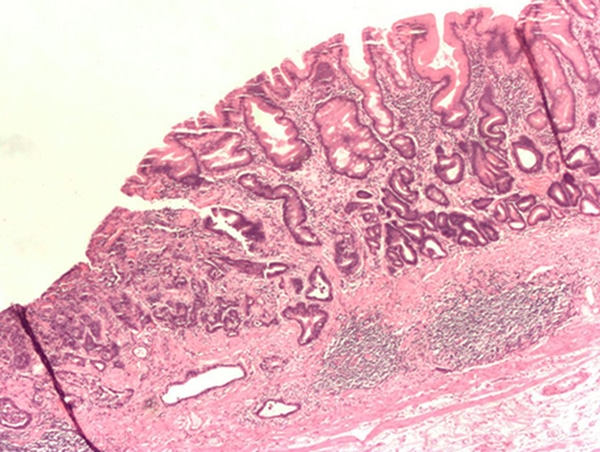Using a Checkpoint Inhibitor with Chemotherapy for Three Gastrointestinal Cancers
The FDA has approved an immunotherapeutic in combination with chemotherapy to treat certain patients with gastric cancer, gastroesophageal junction cancer, and a common form of esophageal cancer.
The U.S. Food and Drug Administration (FDA) has approved nivolumab (Opdivo) in combination with chemotherapy for advanced or metastatic gastric cancer, gastroesophageal junction cancer, and esophageal adenocarcinoma.
Nivolumab is a type of immunotherapy that inhibits the function of the checkpoint protein PD-1, thereby releasing the brakes on T cells so they can attack the cancer.
The efficacy of adding nivolumab to a chemotherapy regimen was evaluated in a randomized, multicenter, open-label trial in which one group of patients received nivolumab in combination with chemotherapy and another group was treated with chemotherapy alone.

There were 955 patients in the study whose cancers scored a 5 or greater for PD-L1 protein expression using an accepted methodology and a biomarker test that helps identify patients likely to respond to anti-PD-1 therapies. Among the patients in this group, the median overall survival was 14.4 months for those in the nivolumab plus chemotherapy arm of the study versus 11.1 months for those in the chemotherapy-alone arm. The median progression-free survival was 7.7 months for patients receiving nivolumab plus chemotherapy and 6.0 months for patients who received chemotherapy alone.
Gastric, or stomach, cancer begins in the mucosal layer of the stomach and then spreads to cells in the outer linings. Gastroesophageal junction adenocarcinoma is a rare type of esophageal cancer that starts in the area where the esophagus joins the stomach. Esophageal adenocarcinoma is a common type of esophageal cancer that occurs in tissue that makes mucus or fluids.
According to federal statistics, in the U.S. there were an estimated 26,000 new cases of stomach cancer diagnosed in 2021 and over 19,000 new cases of esophageal cancer.
The FDA rendered its decision on April 16, 2021.
